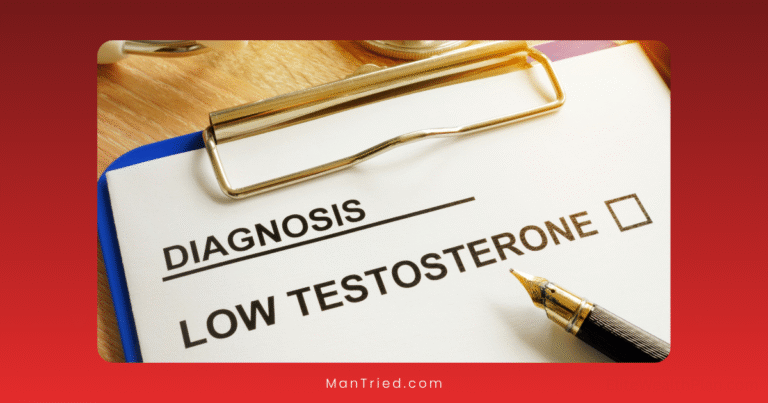Post-Surgery ED: Recovery Timeline and Expectations

When Robert scheduled his prostate surgery, his doctor reviewed all the potential complications—infection, bleeding, urinary incontinence. But it was the mention of erectile dysfunction (ED) that truly concerned him. “Will I ever be able to have a normal sex life again?” he wondered.
This question weighs heavily on the minds of many men facing surgery. Whether it’s prostate cancer treatment, heart bypass surgery, or other major operations, the impact on sexual function is a legitimate concern that deserves honest discussion.
“Patients often feel uncomfortable asking about sexual function after surgery,” says Dr. Sarah Chen, urologist at Johns Hopkins Medicine. “But it’s a crucial aspect of quality of life and should be part of any comprehensive pre-surgical consultation.”
Let’s explore what men can realistically expect regarding erectile dysfunction after different types of surgery, the recovery timeline, and the treatment options available in 2025.
Prostate Surgery and Erectile Function
Prostate cancer surgery (radical prostatectomy) has one of the most direct impacts on erectile function due to the prostate’s proximity to nerves controlling erections.
The Recovery Timeline
According to Johns Hopkins Medicine, here’s what men typically experience:
Immediate Post-Surgery (0-3 months):
- Nearly all men experience some level of erectile dysfunction
- Spontaneous erections are rare during this period
- Focus is primarily on healing and urinary control
3-6 Months:
- Some men begin to notice improvements in erectile function
- Response to oral medications may begin to improve
- Morning erections may start to return
6-12 Months:
- Significant improvement for many men, especially those who had nerve-sparing procedures
- About 40-50% of men with intact nerves return to pre-treatment erectile function
- Oral medications become more effective during this period
12-24 Months:
- Continued improvement, with 30-60% of men returning to baseline function after two years
- Maximum recovery is typically achieved by the two-year mark
- Some men continue to see improvements even beyond two years
“Recovery of erectile function after radical prostatectomy is often delayed compared to recovery in other areas,” explains Dr. James Harrison, urologist. “While physical capacity and urinary continence typically return within weeks to months, erectile function follows a much longer timeline.”
Factors Affecting Recovery
Several factors influence how quickly and completely erectile function returns after prostate surgery:
- Age: Younger men generally recover faster and more completely
- Pre-surgery erectile function: Men with excellent function before surgery have better recovery prospects
- Surgical technique: Nerve-sparing procedures significantly improve outcomes
- Surgeon experience: More experienced surgeons tend to achieve better results
- Comorbidities: Conditions like diabetes or heart disease can slow recovery
- Rehabilitation efforts: Early intervention may improve outcomes
Promising Developments
A clinical trial presented at the 2025 European Association of Urology Congress showed remarkable improvements in erectile function preservation with advanced surgical techniques. According to eCancer, the NeuroSAFE technique nearly doubled the rate of erectile function preservation:
- 39% of men in the NeuroSAFE group had no or mild erectile dysfunction at 12 months post-surgery
- Only 23% of men in the standard surgery group achieved the same outcome
- Severe erectile dysfunction affected 38% of NeuroSAFE patients versus 56% of standard surgery patients
“These results are game-changing,” notes Dr. Michael Torres, who specializes in prostate surgery. “The NeuroSAFE approach allows us to examine the prostate margin during surgery, ensuring we remove all cancer while preserving as much nerve tissue as possible.”
Heart Surgery and Erectile Function
Cardiac procedures, particularly coronary artery bypass grafting (CABG), also impact erectile function, though through different mechanisms than prostate surgery.
The Recovery Timeline
Based on research published in PMC, here’s what men typically experience after heart bypass surgery:
Immediate Post-Surgery (0-6 weeks):
- Sexual activity is generally restricted during initial recovery
- Many men experience temporary worsening of erectile function
- Focus is on cardiac rehabilitation and healing
6 Weeks – 3 Months:
- Gradual return to sexual activity is typically permitted
- Some men experience continued erectile difficulties
- Psychological factors like anxiety about heart health may contribute to ED
3-6 Months:
- Significant improvement for many men
- One study showed mean erectile function scores increased from 13.95 before surgery to 14.20 six months after surgery
- The percentage of men with severe ED decreased from 11.97% before surgery to 8.21% after six months
Beyond 6 Months:
- Continued improvement possible as overall cardiovascular health stabilizes
- Some men report complete resolution of ED symptoms
- Others may require ongoing treatment for erectile dysfunction
The Paradox of Heart Surgery and ED
Interestingly, heart surgery presents a complex picture for erectile function. According to Heart Surgery Info, while some men experience improvement in erectile function after bypass surgery due to improved blood flow throughout the body, others experience new or worsened ED.
A study cited by PMC found that the incidence of sexual dysfunction in men increased from 20.1% before cardiac surgery to 76.4% twelve weeks after surgery, with impotence specifically increasing from 6.5% to 34.8%.
“This apparent contradiction makes sense when you consider the multiple factors at play,” explains Dr. Robert Chen, cardiologist. “Improved blood flow should theoretically help erectile function, but surgical trauma, medication effects, and psychological factors can counteract this benefit, at least temporarily.”
Factors Affecting Recovery
Several factors influence erectile function recovery after heart surgery:
- Surgical approach: Off-pump procedures show better outcomes for sexual function than on-pump procedures
- Type of surgery: Valve operations appear to have less impact on sexual function than bypass surgery
- Pre-existing cardiovascular health: Better baseline health typically means better recovery
- Medications: Many cardiac medications can affect erectile function
- Psychological factors: Anxiety about heart health or sexual performance
- Rehabilitation efforts: Cardiac rehabilitation programs that address sexual health
Other Surgeries Affecting Erectile Function
While prostate and heart surgeries have the most documented impact on erectile function, other surgical procedures can also affect sexual health:
Colorectal Surgery
Surgeries for colorectal cancer or inflammatory bowel disease can damage nerves controlling erection:
- 10-70% of men report some degree of erectile dysfunction after colorectal surgery
- Recovery timeline varies widely, from months to years
- Nerve-sparing techniques can significantly improve outcomes
Bladder Surgery
Radical cystectomy (bladder removal) for bladder cancer:
- Up to 80% of men experience erectile dysfunction after standard radical cystectomy
- Nerve-sparing techniques can reduce this to 25-60%
- Recovery timeline similar to prostate surgery, with maximum improvement by 2 years
Spinal Surgery
Operations on the lower spine can affect nerves controlling erection:
- Incidence varies widely based on the specific procedure and approach
- Recovery typically occurs within 6-12 months if nerve function is preserved
- Some cases may result in permanent changes to erectile function
Treatment Options in 2025
Regardless of the cause of post-surgical erectile dysfunction, several treatment options are available, with new advances continuing to emerge:
First-Line Treatments
Oral Medications:
- PDE5 inhibitors remain the first-line treatment for most forms of ED
- Options include sildenafil (Viagra), tadalafil (Cialis), vardenafil (Levitra), and avanafil (Stendra)
- Effectiveness varies by surgical type: approximately 75% of men who undergo nerve-sparing prostatectomy achieve erections with these medications
- For heart surgery patients, these medications are generally safe once cardiac rehabilitation is complete
Penile Rehabilitation Programs:
These structured programs aim to maintain penile tissue health during recovery:
- Daily low-dose PDE5 inhibitors to increase blood flow
- Vacuum erection devices used regularly (often daily)
- Scheduled sexual activity or masturbation to promote blood flow
- Early intervention, often starting within weeks of surgery
According to UC Davis Health, penile rehabilitation is typically recommended for at least one year to maximize erectile recovery.
“The ‘use it or lose it’ principle applies to erectile function after surgery,” explains Dr. Chen. “Regular blood flow to the penis helps prevent tissue atrophy and fibrosis that can make recovery more difficult.”
Second-Line Treatments
For men who don’t respond adequately to oral medications:
Vacuum Erection Devices (VEDs):
- Mechanical devices that create a vacuum to draw blood into the penis
- Success rate of approximately 80% in creating an erection
- Non-invasive option that can be used regardless of nerve damage
- May help prevent penile shortening after prostate surgery
Intraurethral Suppositories:
- Medication (alprostadil) inserted into the urethra
- Can encourage erections from two weeks to three months after surgery
- Less invasive than injections but generally less effective
Penile Injections:
- Medications injected directly into the penis to create an erection
- Considered the most reliable non-surgical treatment for ED
- Effective regardless of nerve damage
- Success rates up to 85% for inducing erections
Advanced Options
For men with severe, persistent ED who don’t respond to other treatments:
Penile Implants:
- Surgical devices that allow men to control when and how long they have an erection
- Three main types: three-piece inflatable, two-piece inflatable, and semi-rigid
- 100% effective for creating an erection
- High satisfaction rates (approximately 90%) among recipients
- Modern implants last 12-15 years on average
According to Cancer Treatment Centers of America, the three-piece inflatable implant offers the most natural erection and is the most commonly chosen option.
Emerging Treatments
Several innovative approaches are showing promise for post-surgical ED:
Low-Intensity Shockwave Therapy:
- Non-invasive treatment that stimulates growth of new blood vessels
- May help regenerate nerve function in some cases
- Typically requires multiple sessions
- Most effective for mild to moderate ED
Platelet-Rich Plasma (PRP) Therapy:
- Injections of concentrated platelets from the patient’s own blood
- Promotes tissue regeneration and healing
- May help recover nerve function after surgery
- Still considered experimental for post-surgical ED
Stem Cell Therapy:
- Aims to regenerate damaged nerve tissue
- Shows promise in early clinical trials
- Potential to restore natural erectile function
- Currently available mainly through clinical trials
Psychological and Relationship Aspects
The psychological impact of post-surgical ED can be significant and should not be overlooked:
Common Psychological Responses
- Grief over loss of sexual function
- Anxiety about sexual performance
- Depression related to changes in self-image
- Relationship stress and communication challenges
- Fear of rejection or abandonment by partners
Supportive Approaches
Individual Counseling:
- Helps process emotions related to surgical outcomes
- Addresses performance anxiety that may compound physical issues
- Develops coping strategies for the recovery period
Couples Therapy:
- Facilitates communication about sexual changes
- Explores alternative forms of intimacy
- Helps partners understand the physical aspects of recovery
- Prevents misinterpretation of ED as lack of attraction
“The psychological component of post-surgical ED is often underaddressed,” notes Dr. Jennifer Lopez, sex therapist. “Men who receive psychological support along with medical treatment generally report better quality of life during recovery, regardless of the physical outcome.”
Setting Realistic Expectations
One of the most important aspects of managing post-surgical ED is setting realistic expectations:
What to Expect
- Recovery takes time—often much longer than recovery of other functions
- The process is rarely linear; setbacks are common
- Function may not return exactly as it was before surgery
- Adaptations and aids may be necessary for satisfying sexual activity
- Partner communication becomes even more important
Communicating with Healthcare Providers
To ensure the best possible outcomes:
- Discuss sexual function before surgery: Understand the specific risks based on your situation
- Ask about nerve-sparing options: When applicable, these techniques can significantly improve outcomes
- Request a penile rehabilitation plan: Early intervention may improve recovery
- Report changes honestly: Accurate information helps guide treatment
- Don’t wait to seek help: Earlier intervention typically leads to better outcomes
The Bottom Line
Post-surgical erectile dysfunction is common, but in 2025, it’s also highly treatable. The recovery timeline varies significantly based on the type of surgery, individual factors, and rehabilitation efforts, but most men can expect some improvement within the first year after surgery.
“The key message I give my patients is that while sexual function may change after surgery, satisfying sexual intimacy remains possible,” says Dr. Harrison. “With the right expectations, appropriate medical intervention, and open communication with partners, most men can maintain or regain a fulfilling sex life after surgery.”
For Robert, whose story we began with, recovery took time. Six months after his prostate surgery, he began responding to oral medications. By 18 months post-surgery, he had regained about 70% of his pre-surgical function—not perfect, but enough for a satisfying sex life with some adaptations and open communication with his partner.
“It wasn’t the quick recovery I initially hoped for,” Robert reflects, “but understanding the timeline helped me stay patient and persistent with treatment. I wish I’d known from the beginning that this was a marathon, not a sprint.”
Have you experienced erectile dysfunction after surgery? What treatments or approaches were most helpful in your recovery? Share your experience in the comments below.






